Biden looks to navigate a 'moment of reckoning for Democrats' on crime
WASHINGTON — When he spoke to a conference of mayors last Friday, President Biden didn’t directly address an issue that has come to dominate many of those mayors’ agendas and could pose a major challenge for Democrats in November’s midterm elections: crime.
The omission was surprising, as only hours before, White House press secretary Jen Psaki had indicated Biden would offer more substantive remarks on an issue plainly concerning to many Americans.
“He’ll talk about this — he’ll talk about crime,” Psaki said as Biden prepared to speak to the annual U.S. Conference of Mayors convention that afternoon. “The president believes that no one in this country should worry about whether it’s safe to ride the subway or go to — or the bus or go to work or walk home at night.”
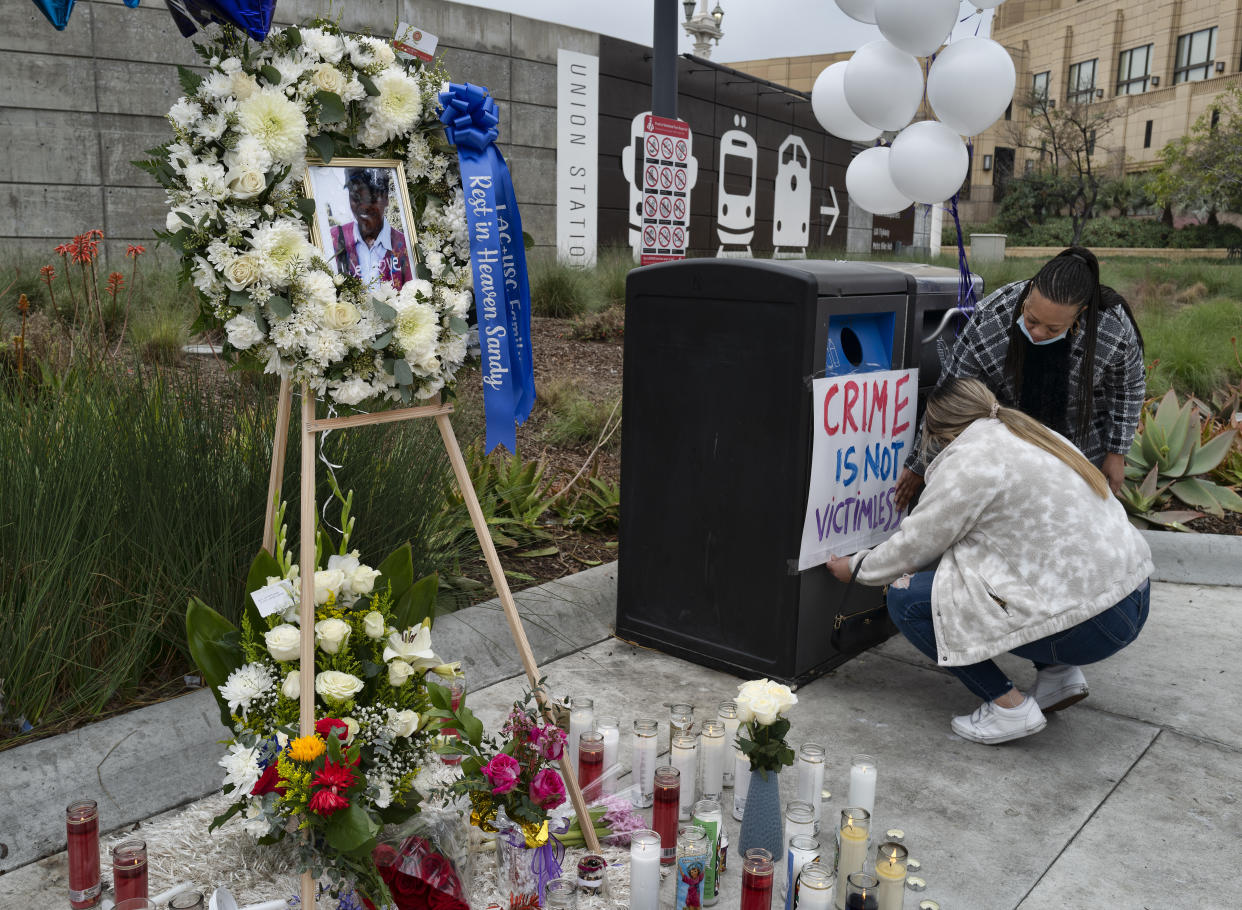
Psaki’s prediction proved incorrect. In his remarks to the mayors, which lasted 22 minutes, Biden devoted two lines to the issue of crime, touting “proven programs to help fight violent crime” and advising against “cutting funding” for law enforcement. (The White House did not respond to a Yahoo News request for comment for this article.)
Last year, cities from Portland, Ore., to Philadelphia recorded more murders than they have in decades. New York, the nation’s most populous city, saw 488 murders, a 10-year high. The city’s new Democratic mayor, former police officer Eric Adams, was elected last year in a landslide after running as a tough-on-crime pragmatist with little patience for progressive rhetoric — or ideas.
By the time Biden spoke to the mayors on Friday, January had already witnessed several high-profile killings, including the death of a New York woman who was pushed in front of a subway train and a Los Angeles woman who was attacked while waiting at a bus stop and later died from her injuries. Both killings were allegedly committed by homeless men with long criminal records and psychiatric problems.
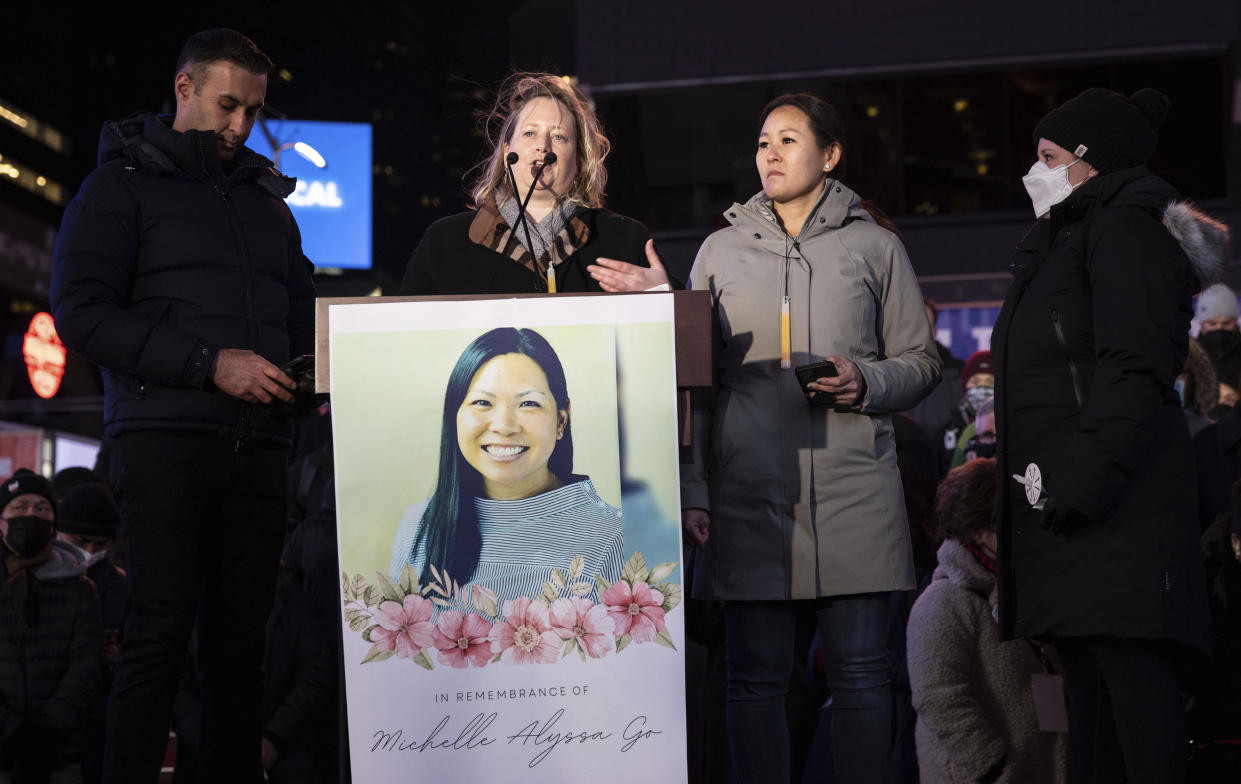
The issue of public safety is likely to continue to hound Biden, whether he addresses it directly or not. Shortly after he landed at Camp David on Friday evening, three officers of the New York Police Department entered a Manhattan building where they had been summoned by a woman in the midst of a dispute with her son. The 47-year-old son shot at the officers, killing two of them.
According to a recent report by the National Law Enforcement Memorial Fund, 2021 was the deadliest year for police officers since 1930, with 458 killed in the line of duty across all jurisdictions –– a number that includes deaths from COVID-19.
“The stats show that violent crime is still an issue for most major city police departments across the nation,” says Laura Cooper, executive director of law enforcement group the Major Cities Chiefs Association, in an email to Yahoo News. “Gun crime continues to be problematic, as does the increase in crimes committed by young offenders. The contributing factors are numerous, and more must be done at every level of the criminal justice system to hold individuals accountable.”
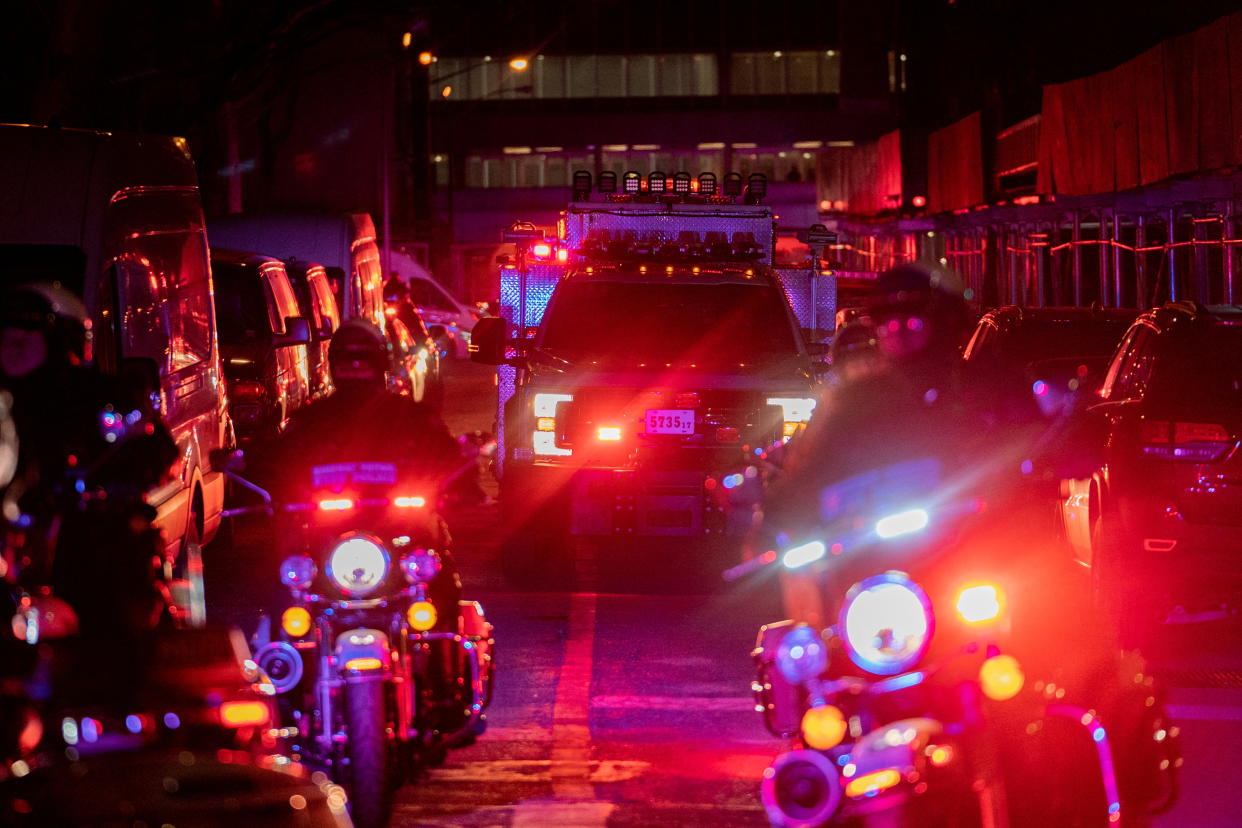
As with much else, Biden is confronted with a real issue that often takes on an air of unreality when filtered through a partisan lens but remains pressing all the same. A poll conducted by Fox News in January showed crime to be Americans’ second-most-common concern, after inflation. The overwhelming majority of victims of the crime wave are young, nonwhite men who have in many ways been relegated to society’s margins.
“It’s often racism that makes young people of color disposable, and we have to confront that and be honest about it,” says Maya Wiley, a civil rights attorney who ran against Adams in New York’s mayoral election. “We could use our resources better and differently.”
Wiley and other progressives worry that the current focus on crime will undo reforms that are only now taking root, with social programs deemphasized in favor of a greater police presence.
Critics counter by arguing that, while holding law enforcement departments to a high standard and ensuring fairness in sentencing are necessary, an ideologically driven inattention to public safety is bound to end in backlash.
“This is a moment of reckoning for Democrats,” says Michael Shellenberger, a San Francisco-based writer who has been critical of recent trends in criminal justice reform, which stress rehabilitation over punishment. “They need to break from the radical progressive left and embrace a positive criminal justice vision.”
After the racial justice protests of 2020, then-candidate Biden adopted the ideas of criminal justice reformers who wanted greater accountability for police officers and more humane sentencing of some classes of criminals. His administration’s “gender equity and equality plan” includes calls for “restorative justice,” ending cash bail and releasing people from prisons.
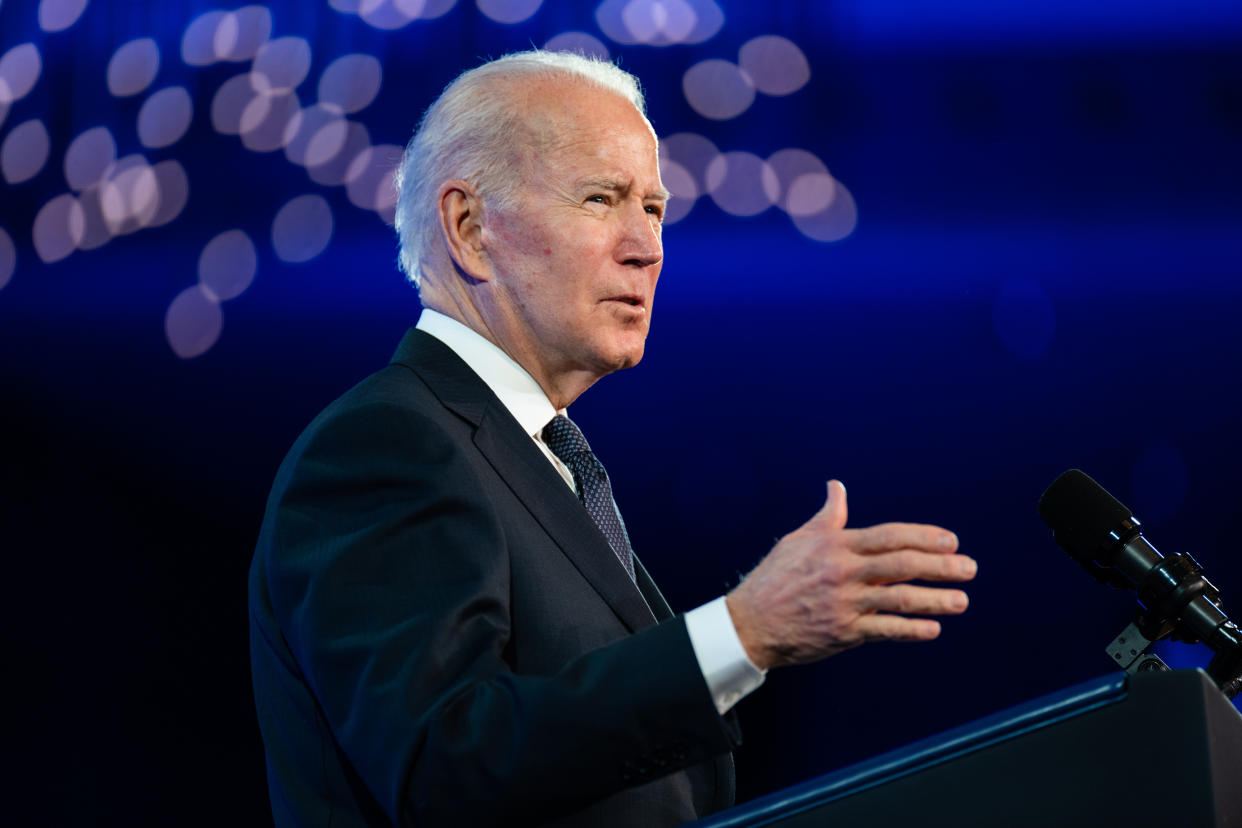
The plan tracks closely with the approach of progressive district attorneys like Chesa Boudin in San Francisco and Alvin Bragg in New York City, as well as of national progressive leaders like Rep. Alexandria Ocasio-Cortez, D-N.Y. Members of that movement hope Biden remains committed to his promises of reform despite calls for him to voice a law-and-order message.
Communities “are not seeking a return to the punitive and failed ‘tough on crime’ starting point of past decades,” says Miriam Krinsky, chief executive of Fair and Just Prosecution. Krinsky points to continuing electoral victories by progressive district attorneys as evidence that the appetite for reform remains high, despite what she calls “a concerning rise in crime in some communities,” a trend she ascribes to the pandemic.
The most prominent of those district attorneys is Bragg, who appeared to be heading for a clash with the city’s new mayor, Adams, when he released a lengthy memorandum instructing his prosecutors to significantly reduce the penalties they sought. Days of criticism followed, and Bragg effectively retracted the memorandum last Thursday.
Nobody seems to know exactly why crime has been rising, after many years of steady decline. The pandemic is surely responsible, but nobody can safely say to what extent.
“We have lost open public school, high school classrooms. We have lost organized sports, both in and out of school. We have lost summer camps. We have lost recreation centers,” Philadelphia’s progressive prosecutor Larry Krasner told Yahoo News in July of last year. Since then, many of those institutions have opened again, to seeming little effect. By the end of the third week of January, more people had been killed in Philadelphia — 37 — than during the same period in 2021, when many segments of society, including schools, were shuttered.
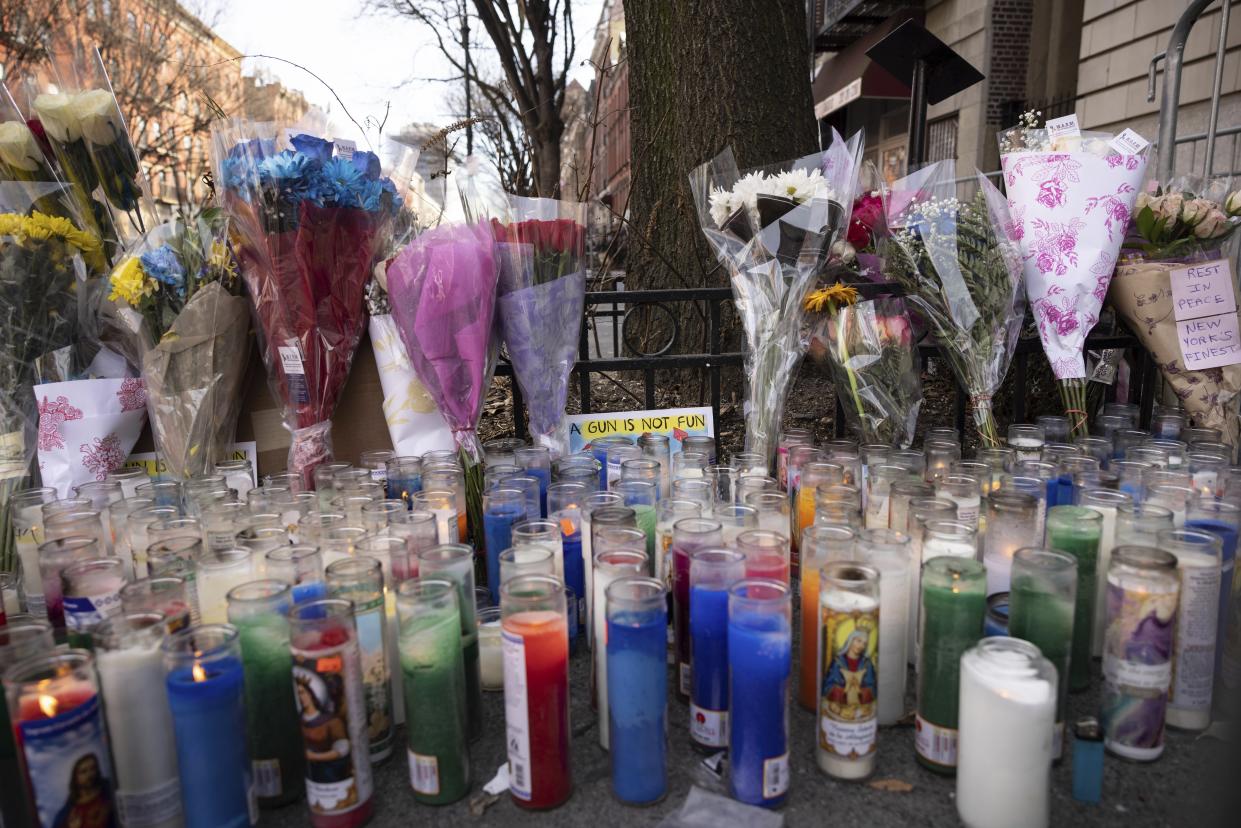
With violent crime continuing to rise and the president’s standing with voters slipping, it could become increasingly difficult for Biden to maintain support for progressive policies while reassuring a nervous public that he is doing all he can to keep people safe. Presidents rarely have the luxury of parsing statistics, or pleading for patience.
So far Biden has largely avoided the issue, seeing little benefit in alienating either progressives or moderates, especially given how little control he has over local policy. He has noted that last February’s coronavirus rescue plan included funds that allowed for the hiring of more police officers; his Build Back Better proposal includes funds for violence-prevention programs. When the president does talk more extensively about crime, it is often in the context of controlling the trade in illegal guns.
Yet the White House is plainly aware that there is a growing demand for a more sweeping acknowledgment of high crime. If addressing the issue is potentially risky, refraining from such a confrontation could only enforce voters’ perceptions that Biden is too concerned with fulfilling progressives’ wishes to listen to their concerns.
Those risks were apparent in a recent focus group conducted with independent voters by pollster Frank Luntz. Within the group, 12 out of 14 described crime as having gotten worse throughout the last year. One resident of Chicago, which recorded 777 murders last year, described the situation there as “completely out of control.” Another mused that “it’s kind of common sense when you’re trying to defund the police” that crime would rise, although numerous towns and cities are now restoring or increasing funding for law enforcement.
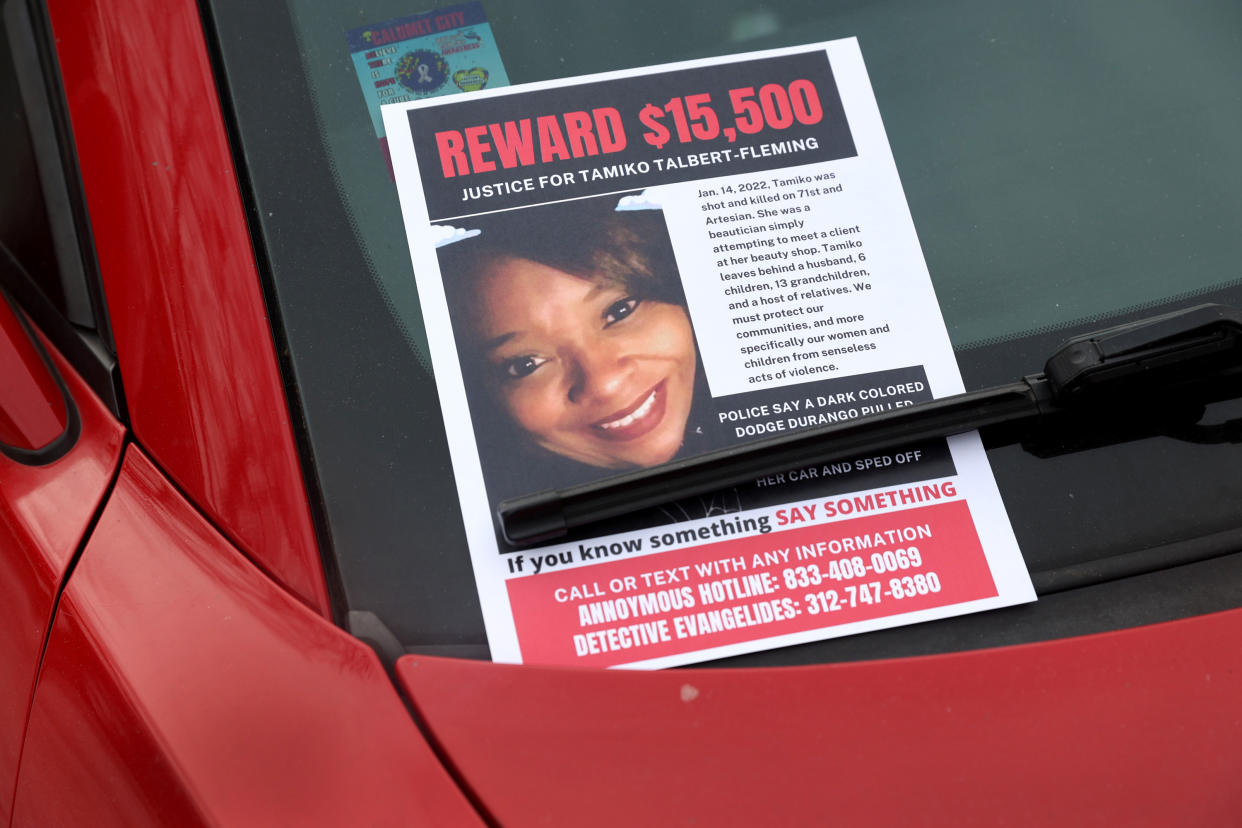
Voters are also starting to tire of criminal justice policies that they say foster disorder and make them feel unsafe. In San Francisco, 80,000 people endorsed moving forward with a recall of Boudin, the embattled district attorney — 30,000 more than was required for the recall petition to be certified.
In a withering interview to a local outlet, former San Francisco prosecutor Brooke Jenkins, a Black woman who supports criminal justice reform, said that progressives like Boudin are imperiling genuine efforts at reform by ignoring public safety. “There’s a proper way to execute reform,” said Jenkins, who has since joined the effort to recall Boudin. “It is not simply to open the jail and let everyone out. It is not simply to refuse to prosecute crime.”
Left-leaning criminal justice reformers counter by arguing that their movement has been frustrated by the pandemic, and that they’ve been further thrown off balance by a new emphasis on stopping crime from conservatives and conservative media outlets. It was, after all, not all that long ago that many conservatives supported sentencing reforms. That hopeful moment, however, has passed.
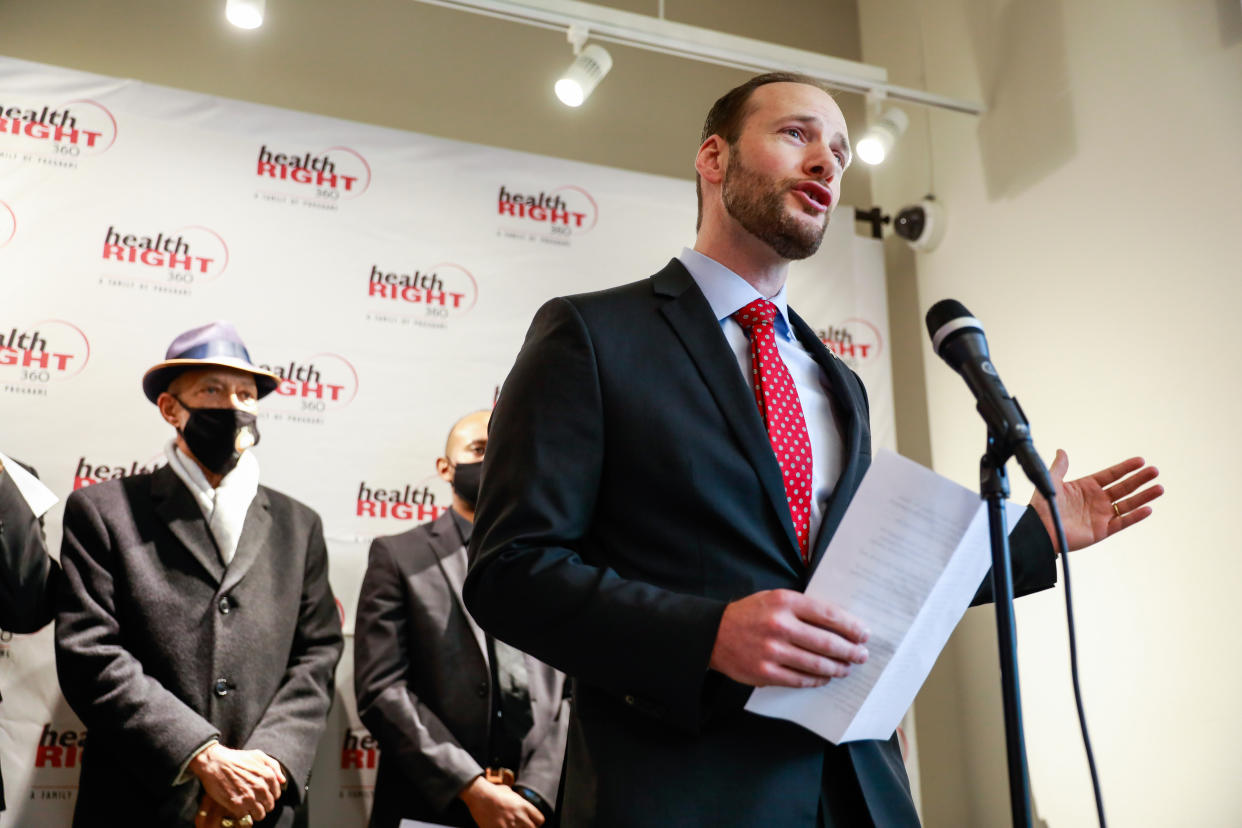
“We can expect conservative operatives and their allies to make bad-faith arguments about criminal justice reform just as they’ve done about the Affordable Care Act, child tax credits and other Democratic initiatives,” says Julie Edwards, a spokeswoman for the campaign to keep Boudin in office. “It’s a shame when those arguments are amplified and allowed to mislead voters.”
Progressives say that media outlets amplify reports of crime. CNN media critic Brian Stelter recently denounced Fox News reporting that, in his view, rendered American cities “apocalyptic hellscapes” governed by socialists. The right makes a similar charge, accusing outlets of downplaying incidents like the killing of six people in November at a Christmas celebration in Waukesha, Wis., by Darrell Brooks Jr., who has a long criminal record and had recently been released from jail.
“Incidents of random violence create fear. It’s very hard to have a fact-driven conversation in the context of fear. Fear makes it harder to break through,” says Wiley, the former New York City mayoral candidate. “It is absolutely true that the appetite for criminal justice reform remains high.”
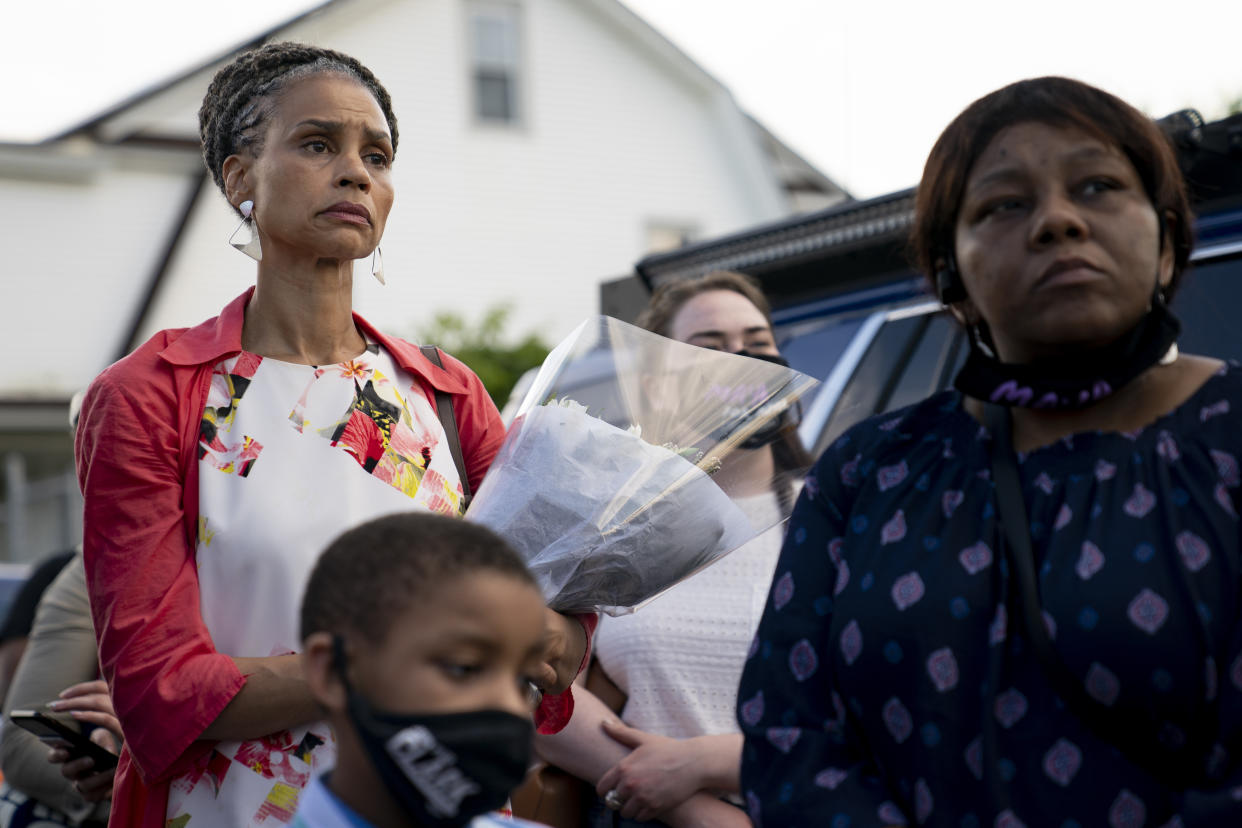
Wiley and others point out that random killings overstate the danger of being a victim, while viral videos of looting foster a sense of disorder that statistics do not always justify.
But the power of perception being what it is, elected officials have had little choice but to respond. Last month, San Francisco Mayor London Breed denounced the disorder on the city’s streets, vowing a greater police response and attention to drug use and violence.
“Running a city is fundamentally about making people feel safe,” an aide to Breed told Yahoo News, citing the mayor’s own experiences as a Black woman who grew up in housing projects and has spoken movingly about people she has known lost to violence.
“We’re committed to police reform,” the aide said. “None of that’s going away.”
Cover thumbnail photo illustration: Yahoo News; photos: AP, Yuki Iwamura/AP, Jeenah Moon/Reuters
